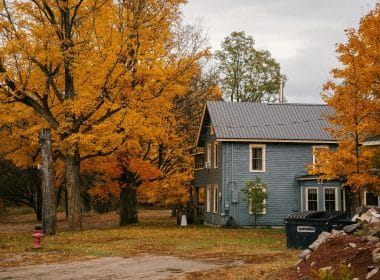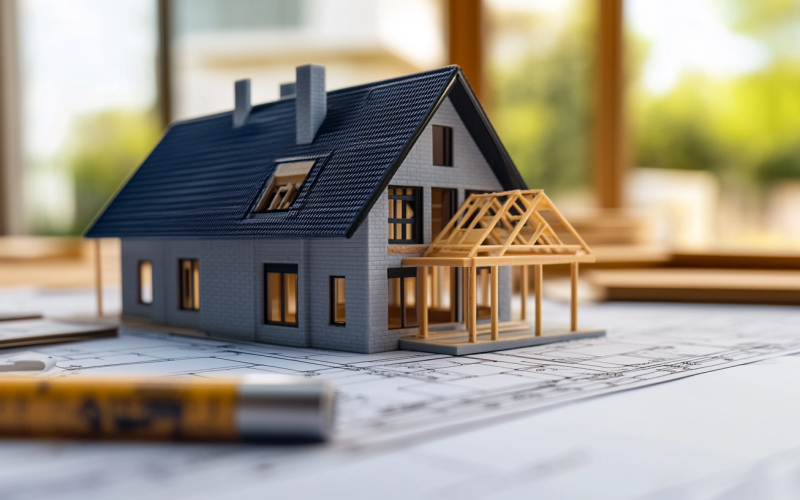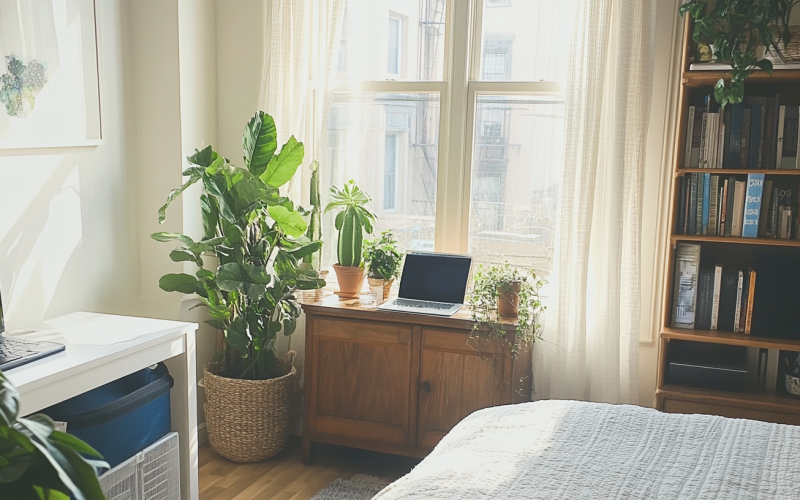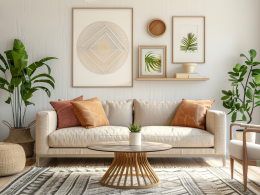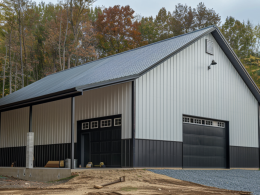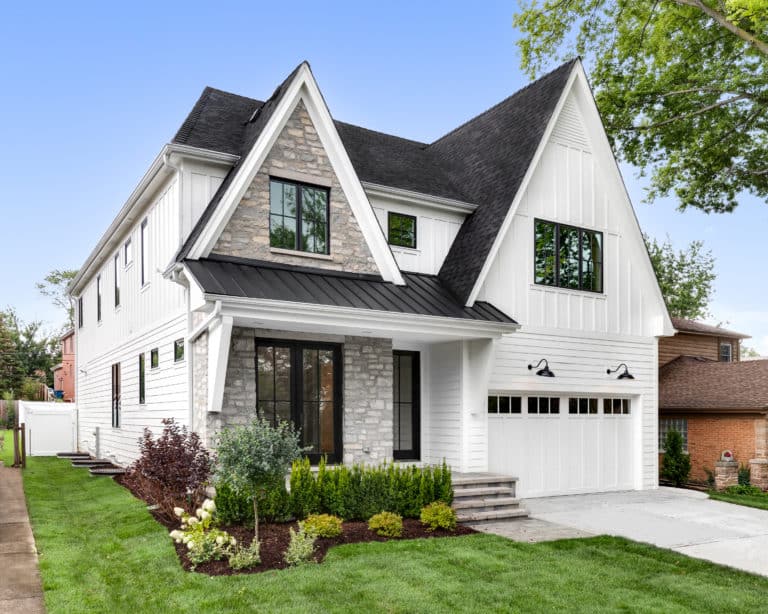Understanding Your Needs and Preferences
Creating a custom home is a remarkable journey, starting with knowing your needs and preferences. Begin by defining your style and requirements.
What kind of design appeals to you? Are you inclined towards modern minimalist designs or a more traditional approach?
Craft a list of non-negotiable features your future home must have, such as the number of bedrooms, type of kitchen layout, or outdoor space.
Also, think about future-proofing your design to accommodate potential growth or changes in your lifestyle, such as a growing family or the need for a home office. This initial clarity will set a strong foundation for your project.
Researching Custom Home Builders
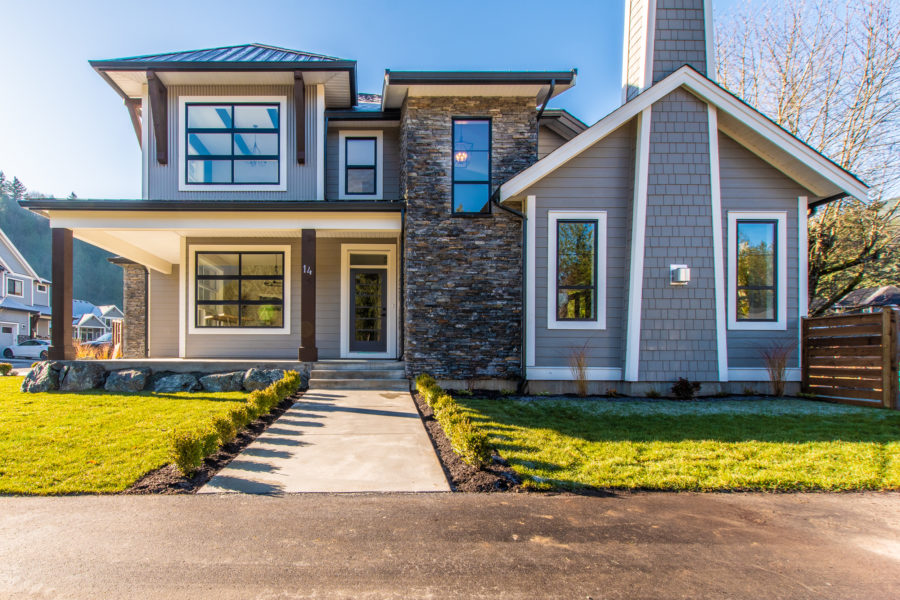
The next phase in the custom home building process is conducting in-depth research on prospective builders. Start by exploring online reviews and client ratings to gauge their reputation. Websites like Angie’s List and Yelp can provide a wealth of honest feedback. Check whether the builders’ style fits your vision by visiting their websites and reviewing their portfolios.
Examine their prior work for consistency in terms of inventiveness and quality. Remember to get referrals from loved ones and friends who have had good experiences.
Personal recommendations offer a degree of assurance and trust. Additionally, utilize resources like Forbes Tips on Selecting Custom Home Builders to get expert advice and insights into what makes a reliable builder.
Assessing Builder Experience and Expertise
The experience and expertise of a builder play a crucial role in your project’s success. Review their past projects and client testimonials to gauge their track record. Look for a diverse portfolio demonstrating their ability to handle different styles and complexities.
Ensure they have ample experience with your preferred style, whether contemporary, colonial, or rustic. It is equally important to check their credentials and industry certifications to confirm their reliability.
Memberships in industry organizations like the National Association of Home Builders (NAHB) are good indicators of professionalism and adherence to industry standards.
Evaluating Builder Transparency and Communication
Effective communication and transparency are essential qualities in a custom home builder. Discuss the custom home-building process and timelines with potential builders. Detailed project timelines help set realistic expectations and ensure that both parties are on the same page.
Get a detailed breakdown of costs, including possible additional fees, to avoid surprises. Your builder should provide regular updates and be responsive to your queries.
Having open and honest communication will help prevent misunderstandings and keep the project on schedule, eventually making constructing easier and more fun.
Investigating Sustainability and Quality Standards
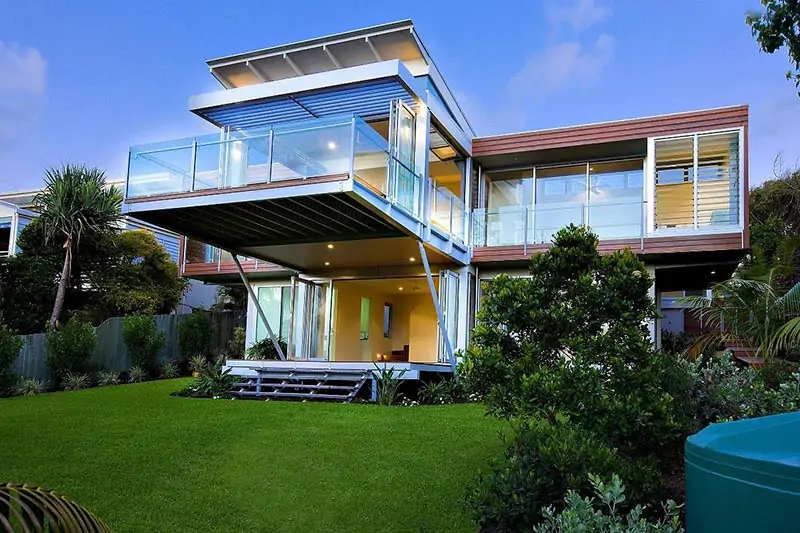
In today’s eco-conscious world, considering sustainability and quality standards is paramount. Check if the builder uses eco-friendly materials and practices. Building a sustainable home not only helps the environment but can also reduce long-term costs.
Verify that their projects meet local building codes and regulations, as compliance ensures the safety and durability of your home. Don’t forget to review their warranty and maintenance support options for added peace of mind.
Websites like Architectural Digest offer questions to ask your homebuilder to ensure they meet these standards. A builder committed to quality will not hesitate to stand by their work with comprehensive warranties and after-sales service.
Reviewing Contracts and Legalities
Understanding the terms and conditions of the contract is critical before committing to a builder. Ensure the contract includes clauses for addressing delays and artistry issues, which protect you in case of unforeseen circumstances.
If something needs clarification, carefully read the tiny print and ask questions. If necessary, consult with a legal advisor to safeguard your interests.
A well-drafted contract should outline the project scope, timelines, payment schedules, and remedies for deviations from the agreed terms. This level of detail helps mitigate risks and provides a clear framework for the construction process.
Visiting Ongoing or Completed Projects
Before making a final decision:
- Visit the builders’ ongoing or completed projects on your shortlist.
- Inspect the quality of construction and finishes firsthand.
- Examine the artistry, attention to detail, and general quality.
Talking to current homeowners about their experiences can provide invaluable insights. They can share firsthand information about the builder’s reliability, communication, and problem-solving abilities.
Noting any issues or inconsistencies in the build can help make an informed choice. These visits offer a tangible sense of the builder’s capability and are essential to your decision-making process.
Finalizing Your Decision
After thorough research:
- List the pros and cons for each builder.
- Go with your gut and select the builder that most closely matches your goals and principles.
- Remember, this is an exciting journey toward building your dream home, so select a partner who will make the process seamless and enjoyable.
A well-chosen builder can make your dream a reality and ensure that your custom home reflects your style, needs, and aspirations. Take your time to make the right choice; the result will be a home you will cherish for years.

